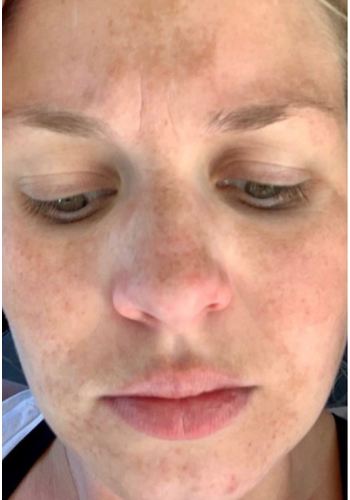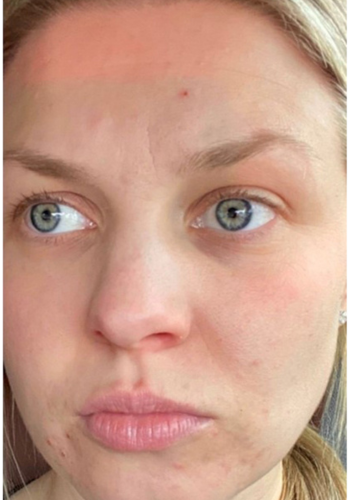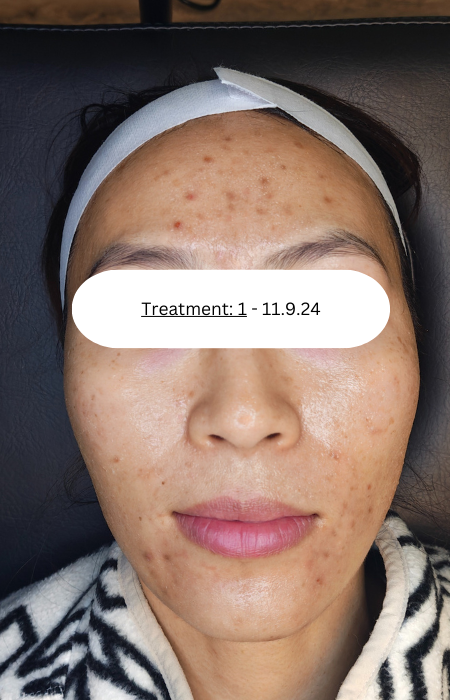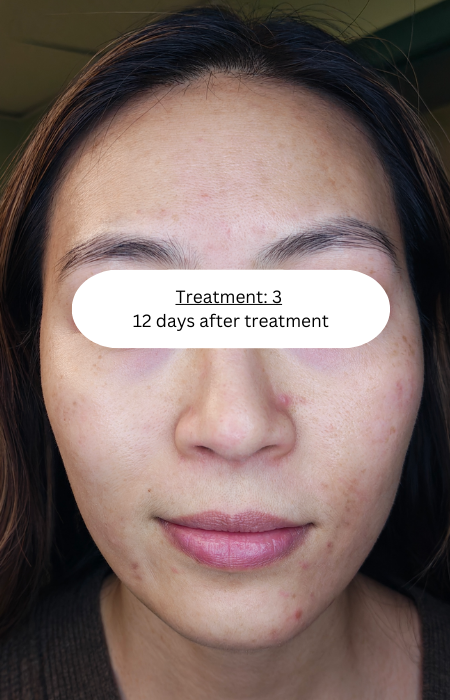
Blemishes

What is it?
Blemishes refer to various marks, spots, or imperfections on the skin that can affect its overall appearance. Common types of blemishes include melasma, sun spots, dark spots from hyperpigmentation, and post-inflammatory marks left behind by previous breakouts. These imperfections can arise from a variety of factors, including sun exposure, hormonal changes, and skin irritation. Blemishes can vary in size, color, and texture, and they may affect individuals differently based on skin type and condition. Recognizing the characteristics of blemishes is key to effectively managing them and attaining clearer, healthier skin.
Key Facts
- Blemishes Are Not Just Acne: Blemishes refer to any skin imperfections, including pimples, dark spots, hyperpigmentation, scars, and redness.
- Caused by Multiple Factors: They can result from acne, sun exposure, clogged pores, inflammation, hormonal changes, or skin conditions like eczema.
- Different Types Exist: Common blemishes include blackheads, whiteheads, dark spots, post-acne marks, and melasma.
- Picking at Blemishes Can Worsen Them: Squeezing or picking at blemishes can lead to scarring, infection, and prolonged healing, making them more noticeable over time.
How long does it last? Does it Relapse?
- Blemishes can last anywhere from a few days to several months, depending on the type and severity.
- Pimples or minor dark spots may fade within a few days to weeks.
- Deep blemishes, like acne scars, may not fade on their own and may require professional treatments.
- If the underlying causes (such as acne, sun exposure, or improper skincare) are not addressed, blemishes can reappear.
Is it curable or treatable?
- Blemishes Are Treatable, Not Always Curable: While most blemishes can be reduced or eliminated, some (like deep scars) may require ongoing management.
- Professional Treatments Speed Up Healing: Chemical peels, laser therapy, RF microneedling, and facials can significantly reduce blemishes and improve skin tone.
- Prevention Is Key: Using sunscreen, non-comedogenic skincare, and avoiding picking at blemishes can help prevent new ones from forming.
- Lifestyle Plays a Role: A healthy diet, proper hydration, stress management, and good sleep can support clear, blemish-free skin.
Before & After




Our treatments
We combine medical and aesthetic expertise to create personalized skincare solutions using advanced laser and energy-based devices.

FAQ
Q: What causes blemishes?
A: Blemishes can be caused by acne, clogged pores, hormonal changes, sun damage, inflammation, and skin conditions like eczema or rosacea.
Q: Is a blemish the same as a pimple
A: A blemish is a general term for any mark or imperfection on the skin, while a pimple is a type of blemish that’s red and raised with a white center.
Q: What does a blemish look like?
A: Blemishes can appear as spots, marks, or discoloration on the skin. They can be different colors, including red, white, black, and brown. The appearance of a blemish depends on the type of blemish and your skin type.
Q: Are blemishes genetic?
A: Most blemishes are the result to micro-traumas to the skin as we age.



